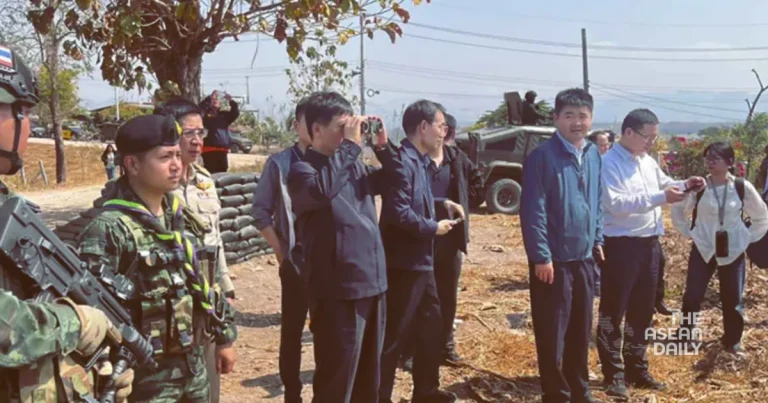4-2-2025 (BANGKOK) Thailand’s defence ministry announced plans to halve electricity supplies to suspected criminal strongholds along the Myanmar border, marking a significant escalation in the battle against illegal operations in the region.
Defence Minister and Deputy Prime Minister Phumtham Wechayachai revealed the strategy following Monday’s high-level meeting of the National Security Council (NSC), which brought together key officials from the Interior Ministry and Provincial Electricity Authority (PEA).
The minister is set to conduct a personal inspection of the Thai-Myanmar border at Mae Sot district on Thursday, after which he will authorise the 50% reduction in power supply. The border town of Shwe Kokko in Myanmar’s Myawaddy, notorious for housing online scam syndicates, is among the primary targets of this initiative.
“The NSC possesses the authority to implement power restrictions without cabinet approval, provided there is concrete evidence of criminal activity in the targeted areas,” Phumtham emphasised.
Interior Minister Anutin Charnvirakul expressed his ministry’s readiness to cooperate, stating they await specific intelligence from the NSC regarding suspected locations. The move follows China’s diplomatic request for Thailand to cease resource provision to fraudulent operations in Myawaddy that have been targeting Chinese nationals.
NSC Secretary-General Chatchai Bangchuad identified three major hotspots of concern: Tachileik opposite Chiang Rai’s Mae Sai district, Myawaddy bordering Tak province, and Payathonzu adjacent to Kanchanaburi province. Intelligence suggests strong links between these criminal enterprises and local casino operations.
“Several establishments have sought increased power allocation, but their requests were denied due to insufficient justification,” Chatchai noted.
The PEA has committed to conducting thorough surveys before implementing any power restrictions. However, the initiative faces scrutiny from critics who argue that internal coalition disagreements have hampered previous efforts to address cross-border criminal activities.




